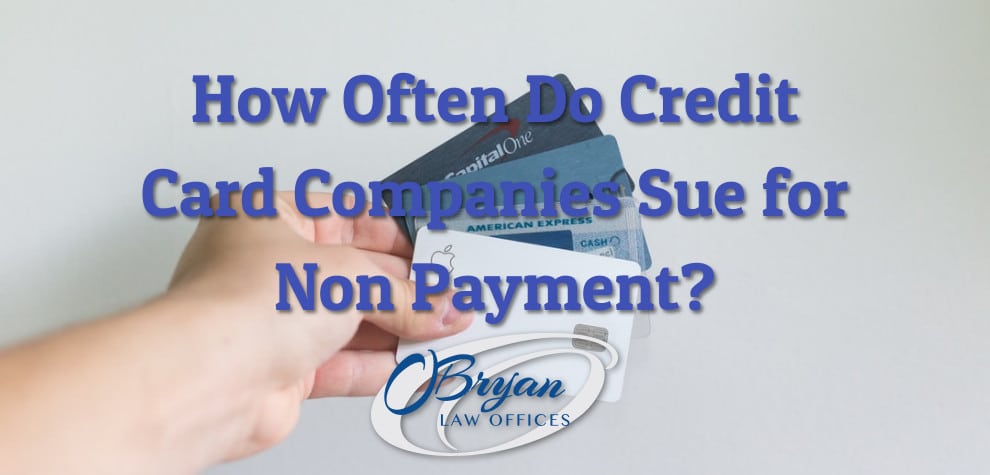Credit card companies sue for non-payment in a relatively small percentage of cases — reports from the Consumer Financial Protection Bureau (CFPB) suggest about 15% of consumers contacted about overdue debt face lawsuits. Lawsuits typically occur after roughly 180 days of missed payments and often when the balance is large enough that legal action makes financial sense.
If you’re in Kentucky and need experienced legal help, don’t wait until notices pile up.
Call our dedicated bankruptcy attorneys in Louisville today at (502) 339-0222 for a free consultation, and take the first step toward protecting your future.
Factors Influencing the Likelihood of a Lawsuit
- Debt Amount: Lawsuits are more likely when the unpaid balance is relatively high. In many litigated credit-card accounts, the average claim is several thousand dollars.
- Account Status (Charge-Off Timing): Once an account is 180 days or so past due, creditors might charge it off, treating it as a loss. After that, the debt may get sold or turned over to collection agencies, which raises the chance of legal action.
- Collectability: Creditors are more likely to sue when they believe the debtor has income, assets, or the ability to satisfy a judgment. If they think there’s no chance of recovery, suing may not be worth the cost.
- Statute of Limitations: Each state has a deadline (often between three and six years for credit-card debt) beyond which a lawsuit cannot legally be filed. Once that period expires, the debt becomes “time-barred.”
- Prior Collection Efforts: Legal suits tend to be a last resort. Creditors usually exhaust other methods first — calls, letters, demands, sometimes offering settlement or payment plans. If these efforts fail over time, then a lawsuit becomes more likely.
What Happens if You’re Sued
- Ignoring the Lawsuit Is Detrimental: If you don’t respond to a lawsuit after being served over your unpaid credit card debt, a default judgment will likely be entered against you. That judgment gives the creditor or debt collector the legal authority to garnish your wages or freeze your bank account under Kentucky law.
- You Have Rights & Legal Protections: Under the Fair Debt Collection Practices Act (FDCPA), third-party collectors must follow rules about what they can and cannot do when trying to collect on debts. You also may have defenses if the debt is wrongly stated, the statute of limitations has expired, or if the collector lacks proof of ownership.
- Kentucky Garnishment Limits & Statute of Limitations: In Kentucky, creditors (or debt collectors) must first obtain a court judgment before they can garnish wages. Once they have a judgment, the law limits garnishment to the lesser of 25% of your disposable earnings, or the amount by which your weekly earnings exceed $ 217.50 (30 times the federal minimum wage) — whichever is less. Also, for most credit card debts in Kentucky, the statute of limitations is five years from the date of default under written or open-ended contracts.
What Consumer Rights and Protections Do I Have in Kentucky?

When you’re behind on your credit card payments and facing a possible debt lawsuit, knowing your rights can make all the difference. Kentucky law and federal rules provide important safeguards that help ensure collectors follow the law while trying to recover the debt. It’s important to take action quickly, because doing nothing can make the legal process much harder to manage. These protections can give you leverage in the courtroom and help you explore options for debt relief.
Statute of Limitations: How Long Can You Be Sued for Credit Card Debt?
In Kentucky, most credit card debts carry a five-year statute of limitations. After that period, creditors cannot legally sue to collect a debt, even though they may still attempt phone calls or letters. This protection applies regardless of the amount of debt you owe. If the debt is “time-barred,” you can raise this as a defense in court, and the case may be dismissed.
Validation of Debt: What Proof Is Required If You’re Sued?
Under the Fair Debt Collection Practices Act (FDCPA), you have the right to request written validation of any debt claimed against you. This is especially important when the account is an old debt that has changed hands between collectors. Validation forces the creditor or collector to prove that the balance is correct and that they have the legal right to pursue the person being sued. Without this proof, they cannot continue their debt collection efforts.
Debt Buyer Lawsuits: What Happens If a Debt Buyer Sues You?
Many debt lawsuits are not filed by the original creditor but by debt buyers who purchase old accounts in bulk. In these cases, the debt buyer must prove both ownership of the account and accuracy of the balance. If they can’t, the judge may dismiss the case.
What Percentage of Debt Is Typically Accepted in a Settlement?
In general, credit card companies accept anywhere from 30% to 80% of debt in a settlement. The percentage fluctuates dramatically, and depends on several factors. Below, we list some of these factors.
- The debtor’s financial situation
- Your cash on hand
- The age of your debt
- The creditor in question
How Can I Stop My Wages From Being Garnished?
The laws of Kentucky actually limit the amount of wages that debt collectors can legally garnish from your wages. In general, creditors with court judgments may only garnish 25% of your wages. Keep in mind that creditors may not garnish your wages in credit card debt-related situations without a court judgment.
As we stated above, creditors can only garnish 25% of your weekly wages. Additionally, the amount garnished must not exceed your disposable income for that week. For example, let’s say that you make exactly $400 in one week after deductions. The creditor is only allowed to take $100 from you. On the other hand, if you work for 32 hours in a week, they may only garnish those 2 hours of pay beyond 30 hours.
What Happens When a Judgment Is Obtained?
Creditors obtain court judgments against you in a number of ways. Below, we include the most common reasons why the courts award creditors with judgments against defendants.
- You fail to respond to the complaint in a timely manner.
- You refuse to respond to a discovery request.
- If you lose a summary judgment motion.
- You lose the trial.
Most judgments include more than just the debt itself. In many cases, they also include interest on the debt, court costs, and attorney fees. After obtaining these judgments, they typically last anywhere from 5-20 years depending on the state.
What Are My Options Beyond a Lawsuit?
If you are behind on your credit card payments, a lawsuit is not the only path forward. In many cases, creditors are willing to work with borrowers before filing a case to recover the debt. Options — including credit card debt solutions — may vary depending on your financial situation. These can include negotiating directly with the creditor, asking about hardship programs that temporarily reduce or pause payments, or pursuing debt consolidation to combine multiple accounts into a single, lower-interest loan.
When other options fail, bankruptcy may serve as a last resort form of debt relief. While it can affect your credit, it may also stop debt collection lawsuits, halt wage garnishments, and give you the chance to reset financially. Seeking professional legal advice can help you weigh these solutions and choose the right approach for your situation.
What Should I Do if I Am Sued for Credit Card Debt?
- Read the Papers – Review the complaint to confirm the creditor, the balance, and the court deadline.
- Watch the Deadline – In Kentucky, you usually have 20 days to respond. Missing it can lead to a default judgment.
- Check the Debt – Compare the claim to your records. If something seems wrong, request validation of the debt.
- Know Your Defenses – You may be protected if the statute of limitations has expired (5 years in Kentucky), or if the debt buyer can’t prove ownership.
- Explore Settlement – Creditors may accept a lump sum or payment plan to resolve the case outside of court.
- Get Legal Help – An attorney can guide you through the process, protect your rights, and explore debt relief options.
| Action | Timeframe | Why It Matters |
|---|---|---|
| Respond to lawsuit | Within 20 days of service | Prevents a default judgment |
| Request debt validation | Immediately after being contacted | Ensures collector can prove the debt |
| Raise defenses (e.g., statute of limitations) | In your written response | Can stop a case from moving forward |
| Negotiate settlement | Anytime before judgment | May reduce the amount you owe |
Contact an Experienced Credit Card Debt Lawyer in Kentucky
Are you being sued for credit card debt? The legal team at O’Bryan Law Offices offers our clients in Kentucky and Indiana personalized, forward-looking plans tailored to their specific needs. We provide attentive, knowledgeable service in consumer cases, from bankruptcy in Kentucky to credit card debt. Not having one’s finances in order makes life difficult, and much more stressful than it has to be. If you want to get your life back on track, move forward, and eliminate your financial stress, contact us today. Call our office at (502) 339-0222 to set up your free consultation.
Frequently Asked Questions
Yes, you can still be sued in Kentucky if the credit card company or debt buyer establishes that you now reside here. Jurisdiction generally follows where you live or where the debt contract was signed. If you’ve moved, consult a Kentucky attorney to confirm venue and possible defenses.
Missing a debt lawsuit hearing in Kentucky usually results in a default judgment against you. If you have a valid reason—such as illness or a scheduling conflict—you must file a motion to reschedule before the hearing date. An attorney can help prevent serious consequences from non-appearance.
A creditor cannot freeze your bank account in Kentucky without first obtaining a court judgment. Once judgment is entered, however, your account may be garnished or frozen with little to no advance notice. To avoid surprise freezes, monitor lawsuit filings and take action promptly after being served.
For your initial consultation, gather all court papers, recent account statements, creditor letters, and any settlement offers you’ve received. Kentucky attorneys use these documents to identify defenses, verify balances, and develop a response strategy. Having organized records allows your lawyer to act quickly before deadlines expire.
In Kentucky, unpaid credit card debt lawsuits do not impact your driver’s license or professional license directly. However, if a judgment leads to wage garnishment or frozen accounts, the financial strain could indirectly affect your ability to maintain employment or meet license renewal obligations.








